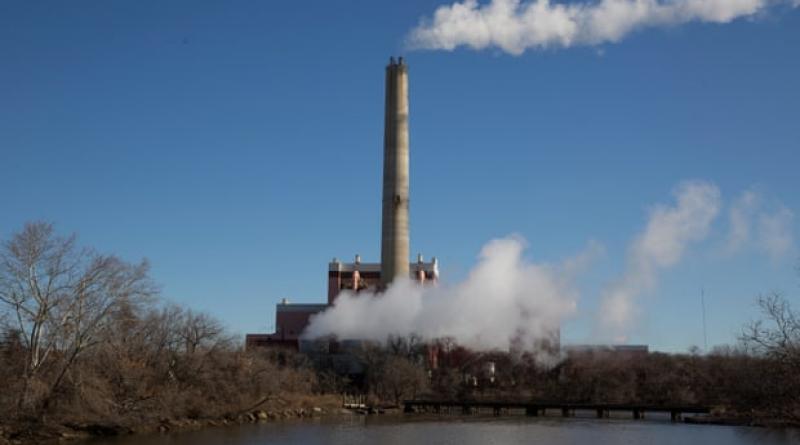Legal challenge over UK's exclusion of incinerators from emissions target.

Campaigner says decision at odds with Paris agreement to achieve net zero by 2050.
An environmental campaigner is mounting a legal challenge to the government’s decision to exclude waste incinerators from its post-Brexit carbon emissions trading scheme designed to bring the UK to net zero emissions by 2050.
Georgia Elliott-Smith, a sustainability consultant who is fighting the expansion of the Edmonton incinerator, is seeking a judicial review of the omission of what legal papers say are “staggering” levels of CO2 emissions from waste incinerators.
Lawyers acting for Elliott-Smith claim in a letter to the government that the failure to include millions of tonnes of carbon emissions from waste incinerators is unlawful. They argue that in drawing up its new carbon trading scheme – the first since the UK left the EU – ministers have not considered the Paris agreement requirement to reduce emissions as soon as possible.
They draw parallels with the victory of Friends of the Earth, who successfully argued the government decision to allow the expansion of Heathrow airport was unlawful because it failed to consider the Paris agreement.
Elliott-Smith, who is crowdfunding to pay the legal fees, said: “I’m tired of pollution filling the lungs of my children, suffocating those that live in poorer, more industrial parts of the country.
“I’m tired of incinerators claiming to be environmentally friendly while they pour out greenhouse gases that are destroying the planet.”
The letter of action from Leigh Day solicitors sent to the business secretary, Alok Sharma, quotes the government’s own figures and those of the campaign group United Kingdom Without Incineration Network, which calculate that the 48 waste incinerators operating in 2019 were responsible for 6.6m tonnes of CO2 emissions from fossil fuel sources.
“That’s the same as all the emissions from Birmingham and Manchester put together,” said Elliott-Smith. “Worse, a further 17 incinerators are under construction and dozens more are seeking planning permission.”
While power stations and landfill site operators have to pay tax to incentivise them to reduce pollution, incinerator operators do not have to pay tax on disposal of waste or for their CO2 emissions.
It was revealed this month that waste incinerators are three times as likely to be situated in areas of deprivation, where higher numbers of people from ethnic minorities live, than in affluent mostly white areas.
Elliott-Smith said she was taking legal action after spending a year campaigning to get MPs, incinerator operators and local councils to implement better ways of dealing with rubbish.
“They are just not listening,” she said. “As an environmental engineer I know that there are cleaner, greener ways to reduce, reuse and recycle materials that make a fairer society for everyone.”
The amount of waste collected by local authorities in England and then incinerated increased from 12.1% of waste in 2008-9 to 43.8% in 2018-19. Elliott-Smith argues that is because government policies make it cheaper to burn waste.
She said: “Brexit means the UK government is rewriting environmental policies, but incineration is excluded from the new UK emissions trading scheme, a crucial way to manage and reduce CO2. Ignoring incineration – simply because it’s cheaper – will be disastrous.”
Lawyers for Elliott-Smith argue the government has failed to consider the pressing need to reduce emissions “as soon as possible”, as required in the Paris agreement to significantly reduce the risks and impacts of climate change, as distinct from achieving net zero emissions by 2050.
The letter says the consequences of this failure are particularly acute in relation to the decision to exclude municipal waste incinerators from the new emissions trading scheme.
“This will mean that huge volumes of emissions are ignored by the scheme and there will be no mechanism to account for, offset, or incentivise the reduction of emissions from incinerators. The scale of these ignored incinerator emissions is staggering,” said a Leigh Day spokesperson.
“The emissions from fossil sources are particularly important, as these are emissions that would not be emitted through other forms of waste disposal: plastic waste stored in landfill does not break down and release greenhouse gas emissions for an extremely long time, while recycling similarly ensures the carbon stored within the fossil sources is not emitted in the short to medium-term.”
A spokesperson for the Department for Business, Energy and Industrial Strategy said: “It is not appropriate to comment on the specifics of potential legal challenges.”
25 August 2020
The Guardian





